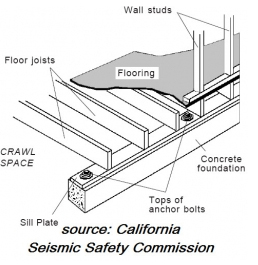 My last few years in the Portland real estate market have been my busiest, so as I re-commit to my updating my website, I can't help but ponder on the past a bit before I move forward. I came into residential real estate as the market began to heat up in 2005. Over the next year the market shifted and very soon offer writing became very competitive, and strategies such as presenting them in person to the sellers when allowed, shortening inspection periods or waiving contingencies, and figuring out what the seller needed so as to get ahead of the competition were necessary for success. Conversely, when the market grew tougher I was able to win a lot of concessions from sellers on behalf of my clients that were buying. Concessions in price of course, and something the market press seemed to ignore, large repair concessions such as completely replacing siding and comprehensive general repairs.
In the slower market days there was a huge gap between sellers and buyers. Sellers all too clearly remembered what their neighbors house had sold for, compared to what it what it would sell for in later days and perceived a huge loss before even putting a home on the market. Buyers were few and very wary of purchasing a home that was priced too high. What if they lost their job and needed to re-sell? Suddenly that home on a busy street that would have sold in a day, was all but unsaleable except at a huge discount. Buyers did not want to be in a precarious position and were adamant that the risk of buying a home would be minimized by their insistence on value, location and condition. Negotiating between these polarized points became a skill that I had to hone again and again. I've wonder if during this period that perhaps I should have introduced myself as a professional negotiator rather than a Realtor. I've found it so valuable to the outcome of my real estate transactions that several years ago I earned a designation in negotiation techniques. It's made performing my job much more effective.
My last few years in the Portland real estate market have been my busiest, so as I re-commit to my updating my website, I can't help but ponder on the past a bit before I move forward. I came into residential real estate as the market began to heat up in 2005. Over the next year the market shifted and very soon offer writing became very competitive, and strategies such as presenting them in person to the sellers when allowed, shortening inspection periods or waiving contingencies, and figuring out what the seller needed so as to get ahead of the competition were necessary for success. Conversely, when the market grew tougher I was able to win a lot of concessions from sellers on behalf of my clients that were buying. Concessions in price of course, and something the market press seemed to ignore, large repair concessions such as completely replacing siding and comprehensive general repairs.
In the slower market days there was a huge gap between sellers and buyers. Sellers all too clearly remembered what their neighbors house had sold for, compared to what it what it would sell for in later days and perceived a huge loss before even putting a home on the market. Buyers were few and very wary of purchasing a home that was priced too high. What if they lost their job and needed to re-sell? Suddenly that home on a busy street that would have sold in a day, was all but unsaleable except at a huge discount. Buyers did not want to be in a precarious position and were adamant that the risk of buying a home would be minimized by their insistence on value, location and condition. Negotiating between these polarized points became a skill that I had to hone again and again. I've wonder if during this period that perhaps I should have introduced myself as a professional negotiator rather than a Realtor. I've found it so valuable to the outcome of my real estate transactions that several years ago I earned a designation in negotiation techniques. It's made performing my job much more effective.
As a listing broker, I've always enjoying preparing homes for the market and photographing them to entice the most visits and attract offers. The slow market for sellers convinced them that this was both necessary and effective. Pre-inspections gave the home-owner a little more control over the buyers inspection and repair process and a better chance of success with nervous purchasers. Through it all, buyers were still buying and one needed simultaneously to earn their trust and desire for the home.
Now that our market has improved, I see a mix of the heydey skills and the tough market skills are needed. Counseling clients, both buyers and sellers, on what to expect and to prepare for before we even begin is very important to their success. While good properties are selling fast, staging can still effect the quality of an offer or whether one can get multiple, over-asking price offers. Condition is still important. Qualifying the right buyer in a multiple offer scenario is also important. Do you want to take your home off the market only to have the transaction fall apart weeks later, losing market momentum and affecting the price? For buyers, while many homes receive multiple offers, one offer is still being accepted- how can it be our offer? How can we be the best qualified buyer? There are strategies that can and must be discussed before one is in the throes of the market.
What did I learn about real estate during the last several years in both "good" and "bad" markets? Residential real estate is about where we live, and where we live changes no matter the marketplace. Every transaction has been an opportunity to improve my skills for my own sense of satisfaction and influence a good result for my clients. In one of our slowest real estate years, 2011, I reached number one in sales in my office of fifty and the top ten percent of my company, a company that is at the top of sales in the Portland market. I'm not able to choose the real estate market conditions that I guide my clients through, but it feels very good to know they can be navigated no matter what the conditions are. Noticing and responding to those market conditions requires both command and subtlety. Based on the last eight years I know that change is coming and constant and manageable and no matter what they call it, it will never be boring.
 This market's February beat last February 2014 pending sales by 37% and closings by 12%, in a demonstration of the strength of this year's market.
This market's February beat last February 2014 pending sales by 37% and closings by 12%, in a demonstration of the strength of this year's market.






























